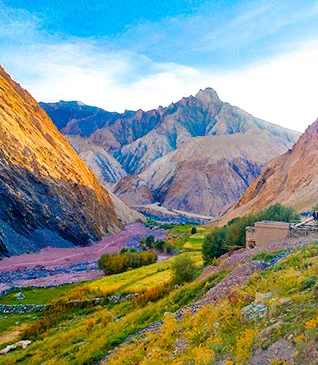Trek The Himalayas, from its inception, has been unwavering in its commitment to the preservation of mountain ecosystems. With its flagship Green Trails Program, the organization has been diligently working to clean and rejuvenate the pristine slopes of the Himalayas. The recent endeavour in the
Pahalgam region of Kashmir, focusing on the Tarsar Marsar Trek, showcases the remarkable impact of responsible tourism in restoring natural beauty and safeguarding fragile ecosystems.
Green Trails: Our Holistic Approach to Conservation
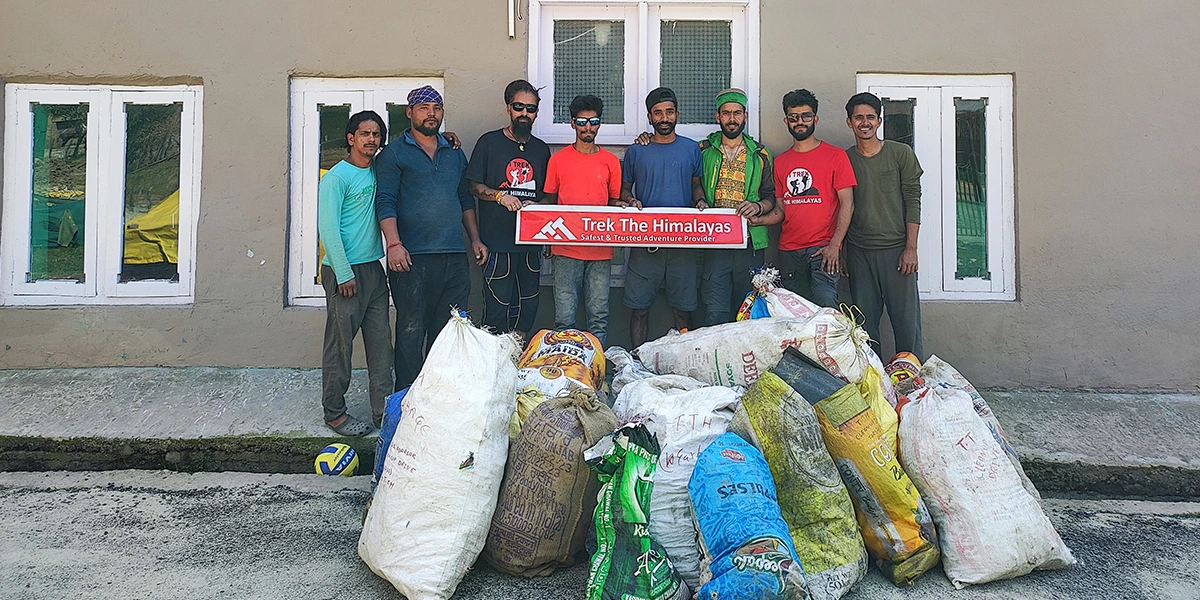
Trek the Himalayas Green Trails Program is at the forefront of our efforts to protect the environment. This comprehensive initiative goes beyond mere cleanup drives. It encompasses a holistic approach to conservation, involving multiple facets of responsible tourism:
- Waste Management: Green Trails actively collaborates with local trekkers, associations, and NGOs to conduct cleanup drives. These initiatives focus on identifying areas in need of immediate attention and developing systematic strategies for waste collection and disposal. By categorizing and segregating waste, we ensure that it is properly disposed of, recycled, or upcycled.
- Education and Awareness: Recognizing that lasting change requires more than physical cleanup, the program places great emphasis on education and awareness. Workshops and campaigns are organized to engage the local community and tourists in responsible tourism practices. These efforts empower individuals with knowledge and inspire them to be conscious stewards of the environment.
- Sustainable Practices: Trek The Himalayas works closely with local communities to implement sustainable waste management solutions and promote eco-friendly practices that can be maintained over time. This proactive approach ensures that the positive changes brought about by their initiatives are enduring.
Through our Green Trails project, we have successfully cleaned many trails and wildernesses like the Roopkund Trail, Goechala Trail, Kuari Pass, Pangarchulla, Govind National Park and many more. Cleaning up the Tarsar Marsar Trail was our very recent Green Trail venture.
The Alarming Rate of Environmental Degradation is a Matter of Concern
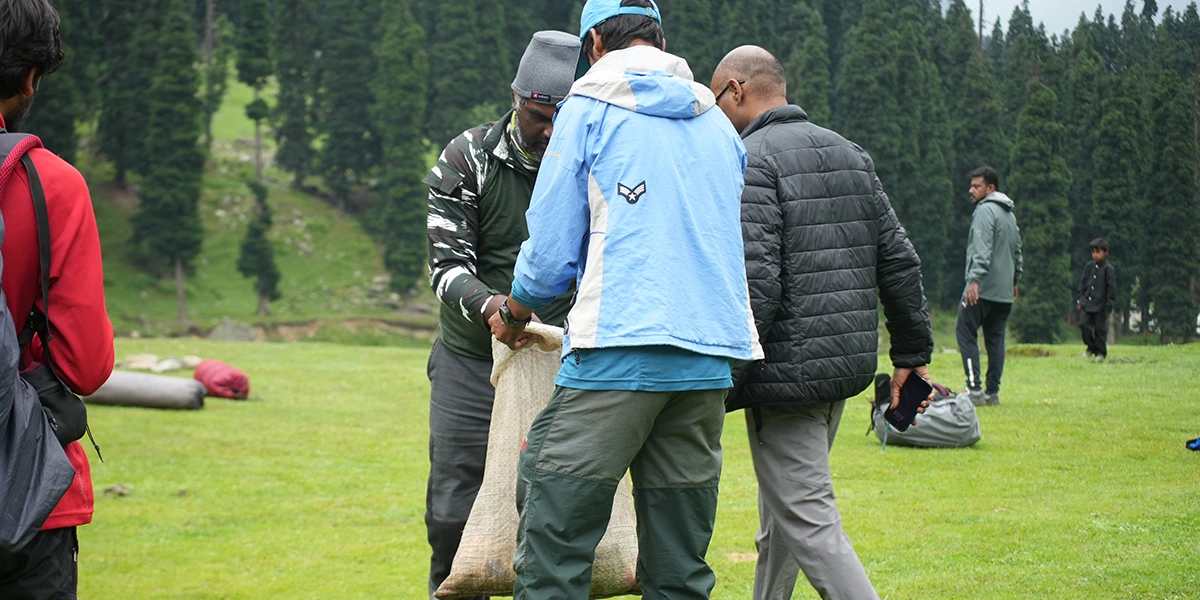
With the upsurge in the adventure and travel industry, the Himalayan region has witnessed serious overcrowding which puts immense pressure on its delicate ecosystems. This overcrowding often results in littering, habitat disruption, and overuse of natural resources. Tourists, inadvertently, leave behind a trail of waste, including plastic, food packaging, and non-biodegradable materials. The lack of proper waste disposal facilities aggravates the pollution of water bodies, soil, and scenic landscapes. Such concerns underscore the urgent need for responsible and sustainable tourism practices to ensure the long-term viability of these destinations and the well-being of local communities.
Our Recent Tarsar Marsar Cleanup Drive

Trek The Himalayas recently organized a 4-day cleaning drive led by their Base Camp Manager, Shubham Bhatt, from September 4th to 9th. The team’s efforts were concentrated on the Lidderwat, Shekwas, Tarsar, and Sundarsar campsites along the trail, as well as the water bodies in their vicinity. The initiative began with a meticulous assessment of the most polluted and environmentally vulnerable areas, focusing on identifying the types and scale of waste issues. A systematic strategy for waste collection and disposal was devised, emphasizing the categorization and segregation of waste materials. The team ensured that collected waste was appropriately disposed of, recycled, or upcycled. Subsequently, a comprehensive report detailing the campaign’s outcomes was prepared and shared with local authorities, partners, and the public, showcasing the initiative’s success. The waste collected was sent to the Pahalgam Municipal Committee for proper disposal and recycling.
Some Positive Impacts of The Cleanup
- Environmental Improvement: The most immediate and visible impact of the cleanup drive was the significant reduction in litter and waste in the targeted areas. This restoration enhanced the natural beauty of the trek, making it more attractive for tourism while preserving its pristine environment. By averting contamination of water bodies, soil, and the surroundings, the cleanup drive played a pivotal role in preventing pollution and enhancing the region’s overall environmental health.
- Wildlife Protection: The Tarsar Marsar Trek is nestled within the remote wilderness of Kashmir and serves as a habitat for diverse wildlife. The elimination of waste and litter from these natural habitats substantially contributed to the protection of local wildlife. Many animals and birds are susceptible to harm from plastic and debris ingestion or entanglement, and the cleanup drive mitigated such risks. A cleaner environment fosters a healthier ecosystem, ultimately benefiting the flora and fauna of the region and maintaining biodiversity and ecological balance.
- Community Benefits: The cleanup drive positively impacted local communities by elevating the overall appeal of the trail. Cleaner, more attractive areas entice tourists to visit and spend time in these locales, thereby benefiting local businesses. Moreover, a cleaner environment results in improved air and water quality, contributing to the overall well-being of the community. These initiatives also raise awareness about sustainable practices and proper waste management, fostering a sense of responsibility among residents and tourists alike.
- Long-Term Sustainability: Our organization understands that the impact of its efforts extends beyond a single cleanup campaign.They work closely with local communities to implement sustainable waste management solutions and promote eco-friendly practices that can be maintained over time. This holistic approach ensures that the positive changes brought about by their initiatives are long-lasting.
Applauads We Received for Our Recent Effort
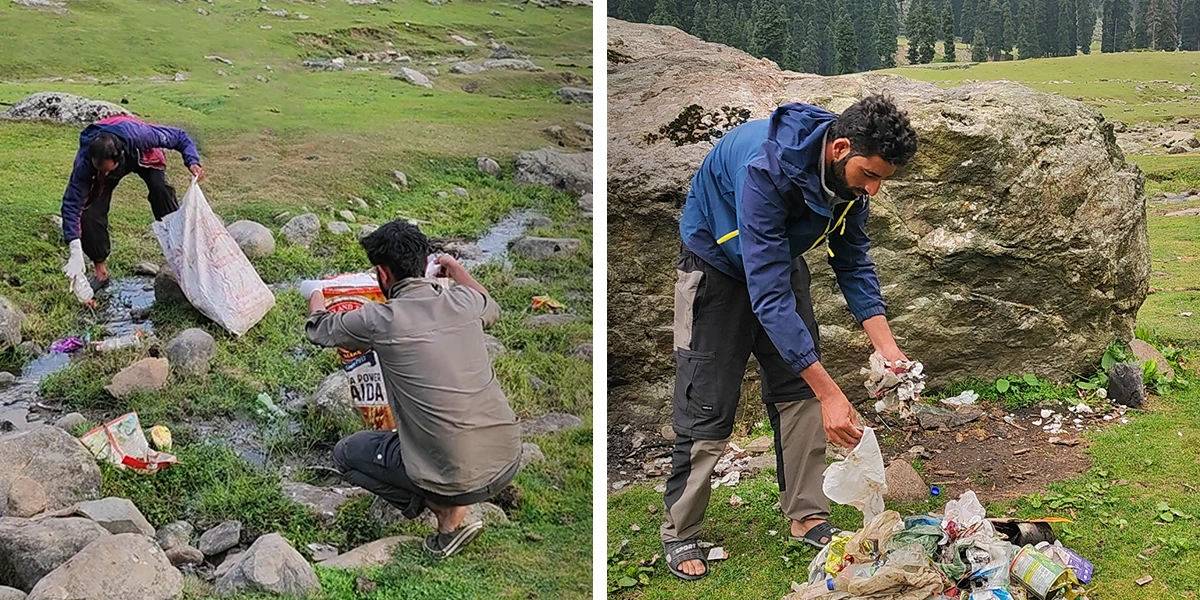
The acknowledgement of our effort was formalized through the presentation of an Appreciation Certificate by the esteemed Pahalgam Tourism Committee
This recognition stands as a significant testament to our unwavering commitment to the principles of responsible tourism and our dedicated role as environmental stewards. Receiving this formal recognition also reinforces our belief in the transformative power of collective action. It sends a powerful message that responsible tourism is not a solitary endeavour but a shared responsibility that extends beyond organizational boundaries. It recognizes that we are part of a larger movement dedicated to preserving the pristine beauty of our natural world.
Responsible tourism is not merely a buzzword but a critical strategy for safeguarding the Himalayas’ beauty and ecology. By embracing responsible tourism practices, we can all contribute to environmental conservation and the sustainable development of mountain communities while protecting wildlife. It’s essential to recognize the profound impact our actions can have on the places we visit. Therefore, we encourage individuals and communities to advocate for responsible tourism, ensuring the preservation of these breathtaking landscapes for generations to come.

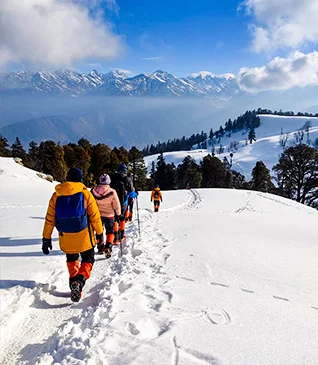


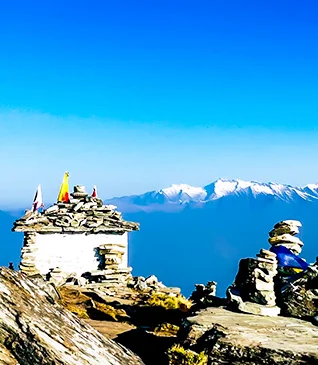
.webp)


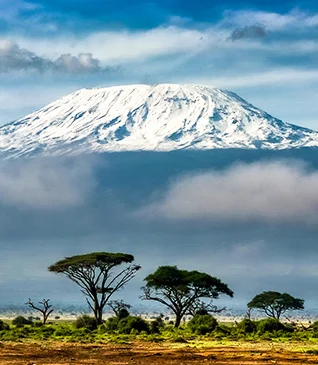


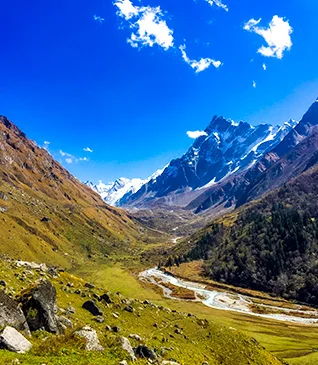
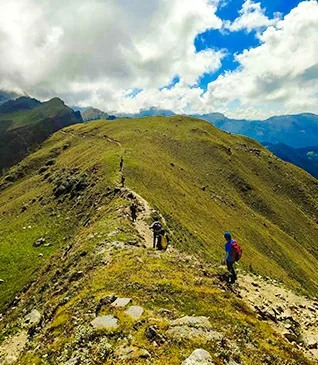

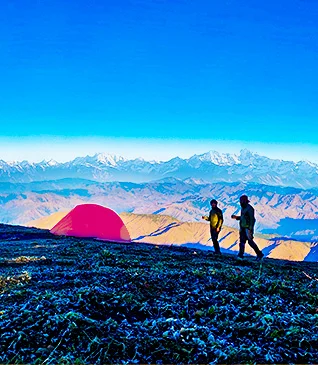
.webp)
.webp)


.webp)
.webp)
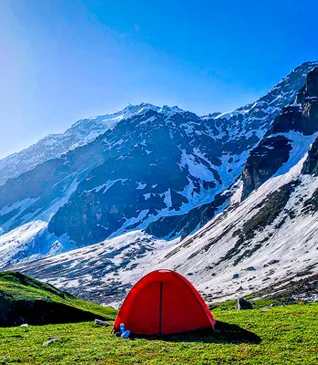
.webp)
